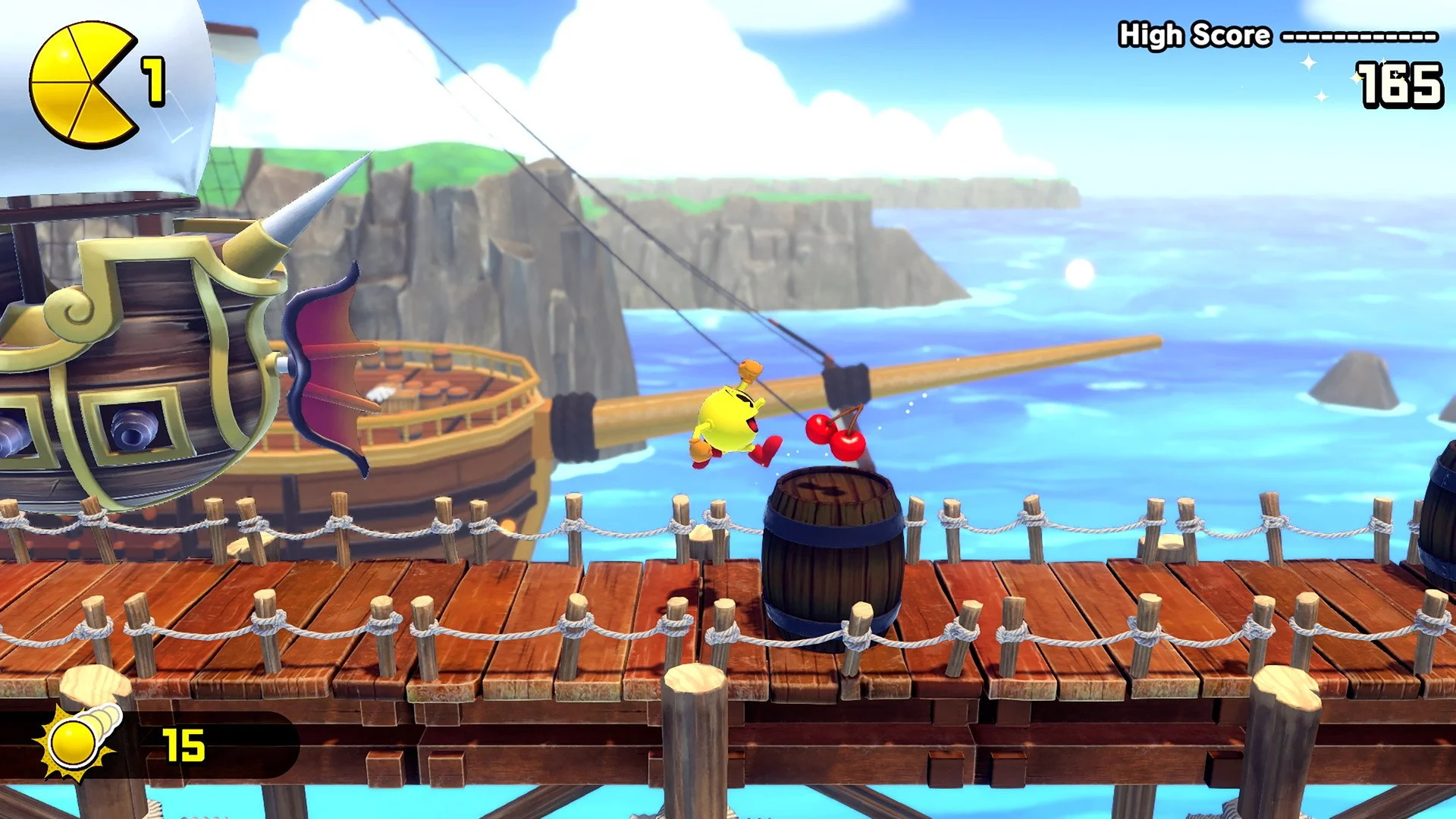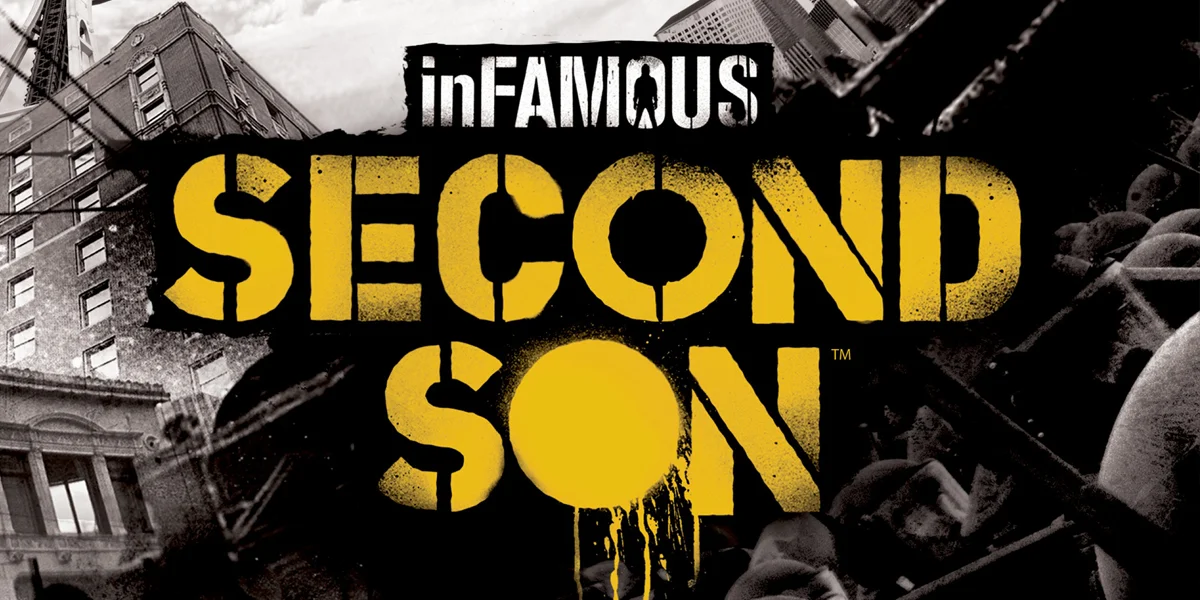inFAMOUS Second Son is Sony’s first console exclusive game since launch. It is a game that has been raised high on the hulking shoulders of the Playstation 4. It promises a ‘next gen’ experience that will make the naysayers of this new generation of consoles, part with their hard earned pennies and shell out for Team Sony. But is this game truly the second coming of video gaming? Or like a second child, forced to play with the previous generations hand me down mechanics?
inFAMOUS Second Son follows Delsin Rowe, the titular Second Son, a graffiti artist delinquent, who like most super heroes, has greatness thrust upon him after discovering that he is a Conduit. Conduit is the term given to those in the inFAMOUS universe with powers, though the easiest comparison would be ‘mutant’ from the Marvel universe. Much like Marvel’s X-men series, ‘Conduits’ are treated like outsiders by society, who have labelled them ‘Bio-Terroists’ and assembled a department to track down & capture Conduits called the Department of Unified Protection (or D.U.P).
Despite how clichéd this story may sound, it brings about what is perhaps the most impressive thing about Second Son: the game’s interesting dialogue that actually matches the motion capture beat for beat. Even when characters say lines that sound somewhat forced, the facial expressions exhibited by the character anchors meaning to them, making them not only forgivable, but even believable.
But even these flourishes of next generation narrative aren’t without their thorns. The game’s characters are interesting, but are painted with such broad strokes of cliché, that their flashback stories sometimes undermine the believability that the actors performances strive so hard to achieve. If the game exhibited a little more show than tell on character motives and histories, Second Son’s story could have raised the bar for storytelling in Triple A titles.
Instead like a weight lifter with one arm weaker than the other, the game’s storytelling displays a muscular imbalance. Where the stronger arm of the game’s storytelling and facial recognition is ready to push things forward, the weaker arm of convention and its need to impart information on the player quickly holds it back.
The game’s karma system leaves a lot to be desired however. While it was a key selling point of the original games, it falls into the Fable trap of not having so much impact on the game, other than visual aesthetics and slight changes in dialogue. There is no moral grey in the stories key choices; it’s always a polar opposite ultimatum of good or evil. The game even colour codes these choices, for those who couldn’t tell that ‘turning yourself in’ was the ‘good’ thing to do, over ‘sacrificing your tribe’ making you seem a little bit bastardly. Though perhaps if you’re in need of colour coded assurance of what you’re doing is right or wrong, there are bigger issues for you to tackle.
In terms of game play, short of an impressive representation of Seattle that is close to fully formed, inFAMOUS never really feels more like very well made, late Playstation 3 title, rather than the next gen opus some had hoped for.
This isn’t necessarily a bad thing however, as the game is fun to play for the most part. Combat is fluid and balanced. Even as the game progresses, you neither feel overpowered or nor completely outgunned, as the game’s Conduit powers offer a way to turn the tide. While these powers are upgradable, apart from the elements their composed of and some small changes to the amount of damage dealt & animation, each new power is based around the idea of a melee & ranged attack, a dash, a powerful attack and a special that can be triggered by using the game’s karma abilities, offering little varieties or reason to switch between powers.
However, the game requires you learn each of these new powers in turn, forcing you into sticking with each of the individual powers for an extended period, rather than allowing the player to simply revert to an older power until later in the game. By the third power unlock, the ritualistic regaining of each attack after receiving a new power takes a lot of momentum out of the game. The game’s final boss encounter is even bogged down in the tedium, forcing you to play the game how Sucker Punch would like you to, rather than how you feel you should, shattering the illusion of player free will in service of the narrative’s natural conclusion, souring the games conclusion slightly and making it feel a little rushed.
The game also suffers from other minor irritations. NPCs will cheer at you one moment, and then the use of a power will make them freak out and run away. The game also punishes you for careless mistakes in combats very heavy handily. While trying to clear out the city of D.U.P agents to gain fast travel, the player can encounter large parking areas full of enemies. If you’re unfortunate enough to clear the whole building, a good 10 to 15 minutes of work, but get killed by the last, more powerful enemy, you’re sent back to the last checkpoint, sometimes at the other side of the city. It could be argued that this is the game attempting to balance risk vs. reward, but can leave Second Son prey to biggest cardinal sin of gaming: making the player feel like they’re wasting time.
Exploring the city is also a blessing and a curse. Traversing a large city that is fully at your disposal feels as next gen as console gaming has got. Running up walls and bouncing up walls is thrilling, but when mixed with poor climbing mechanics & the inability to swim, Delsin feels a lot less super than he should.
But it must be noted - standing on top of a tall building and seeing a city move all around you is really a sight to behold. For a second, you could be forgiven in thinking that Second Son’s Seattle wasn’t the real thing.
It’s not until you get down on the street that this is abolished. There’s not the feeling of life a next gen city should have. While cars drive & NPC’s shout random lines of dialogue based on your character’s moral choices, there are no background noise, no fleeting whispers of conversation, and the distinct hum of traffic isn’t there but an occasional car horn, making the game’s Seattle a city without soul. The city is also for the most part, also indestructible. You can’t bring down buildings or destroy walls, other than DUP structures that are removable from the environment once districts are freed, adding to the feeling the city is no more but a sandbox.
While there is little replay offered rather than freeing the districts, the gimmicky graffiti mini-game or taking part in the 6 part, weekly mission cum transmedia campaign in inFAMOUS Paper Trail, there’s not a lot to keep you coming back on Delsin’s story is done.
While Paper Trail is a fun experiment into using an external device & your own detective skills, to solve a murder both at the console & away from it, these extra missions won’t be everyone’s cup of tea. The post-story city is also more for those aiming for trophies than a rewarding end game experience. You could always replay the game from the opposite karmic stance, but this offers less variety than you would expect.
So is inFAMOUS worth playing at all? Absolutely. While this review is perhaps rather scathing of Sucker Punches’ efforts, Second Son is a glimpse at the future. It’s a solid game by the standards set in the last generation that gives Playstation 4 owners a look at things to come. It’s vast open world, fast and enjoyable combat, combined with a competent story & incredible character performances makes Second Son perhaps the truest experience of this console generation so far. It’s problems lie in the expectations of what it means to be a game on a new console, instead of defining them, it only theories at what an Xbox One or Playstation 4 game should be, rather than what one is.
inFAMOUS is one of the first games of the generation to hint at what’s to come. If you own a PS4 and are curious about Second Son, by all means pick it up. While the game perhaps shouldn’t be the reason for shifting consoles that it undoubtedly will be, it’s undoubtedly Sony’s best offering. But be warned - like the game’s karma system, you need to take the good with the bad. It’s not a flawless experience, but it’s story, cool powers & artificial sense of freedom make inFAMOUS Second Son a game that, at least in this point of the console generation, a worthy addition to your games library.






